Zuzalu
In April and May 2023, I was a resident of the pop-up city Zuzalu in Montenegro, where fellow residents were other nomadic people in crypto, zk, public goods, and longevity. It was the most wholesome and productive time I’ve had in my two years of nomadic life.
The best part of Zuzalu was dinners
Activities were plentiful in Zuzalu. Most days residents had to decide between attending talks with the conference of the week, going to handstand or poi classes, learning wave surfing, circling, or various other resident-led activities. But what made Zuzalu special for me was what often didn’t show up on the schedule: dinners.
In my first few weeks, I made a new friend who loved pho (Vietnamese noodle soup), loved to make pho puns, and had sought pho in Montenegro without success. I had not attempted pho before, but wanted to make this friend happy. Weeks later, with bags of pho noodles and way too many spices squeezed into a visiting friend’s luggage, and a few curious trips to a grocery store next town over, we acquired what we needed to make pho.
Our kitchen wasn’t well equipped for pho, so the whole endeavor became a neighborly collaboration: big pots from a friend’s apartment, sauces from another friend’s apartment, cooking advice from my roommate (an aspiring chef), bowls from yet another friend’s apartment. My favorite moment was when someone went to the house across the street to borrow a stack of 15 bowls. The resident of the house was inundated with work and couldn’t join for dinner, so we brought a bowl of pho over for him to enjoy when working. This exemplified a type of wholesome, neighborly interactions I rarely had when living in one city, let alone when nomad-ing.
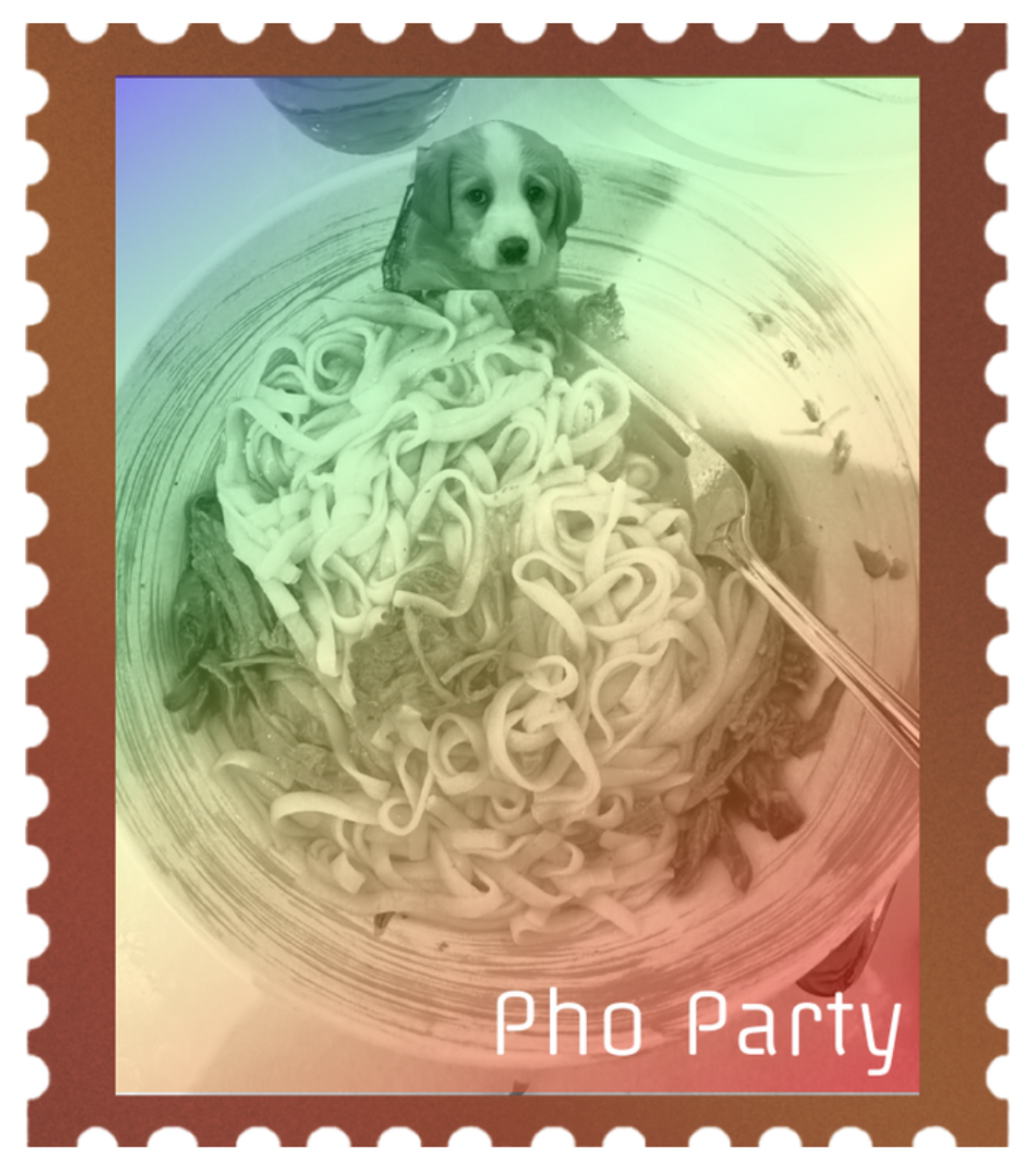 Photo: Pho Party Zupass stamp, with Zuzu cameo
Photo: Pho Party Zupass stamp, with Zuzu cameo
We also hosted a longevity potluck in our apartment and various other smaller home cooked meals with small groups of friends. Other people hosted dinners too. Some were big, elaborate productions: weekly multi-course community dinners prepared in a commercial kitchen by Zuzalu residents, muse dinners where everyone had dinner with one other stranger and asked a series of personal questions, Ukrainian pod dinners hosted by Ukrainians residents, hot pot and karaoke dinners hosted by Chinese residents. Some were small low-effort gatherings: a shin ramen party, where you were supposed to bring your own ramen; or board game dinners, where the chance of actually playing board games is about 50%. My favorite dinner to attend was a small Chinese family meal, where in the middle of food prep we dropped everything to go to the back porch and watch the full moon rising from behind the mountains above the bay.
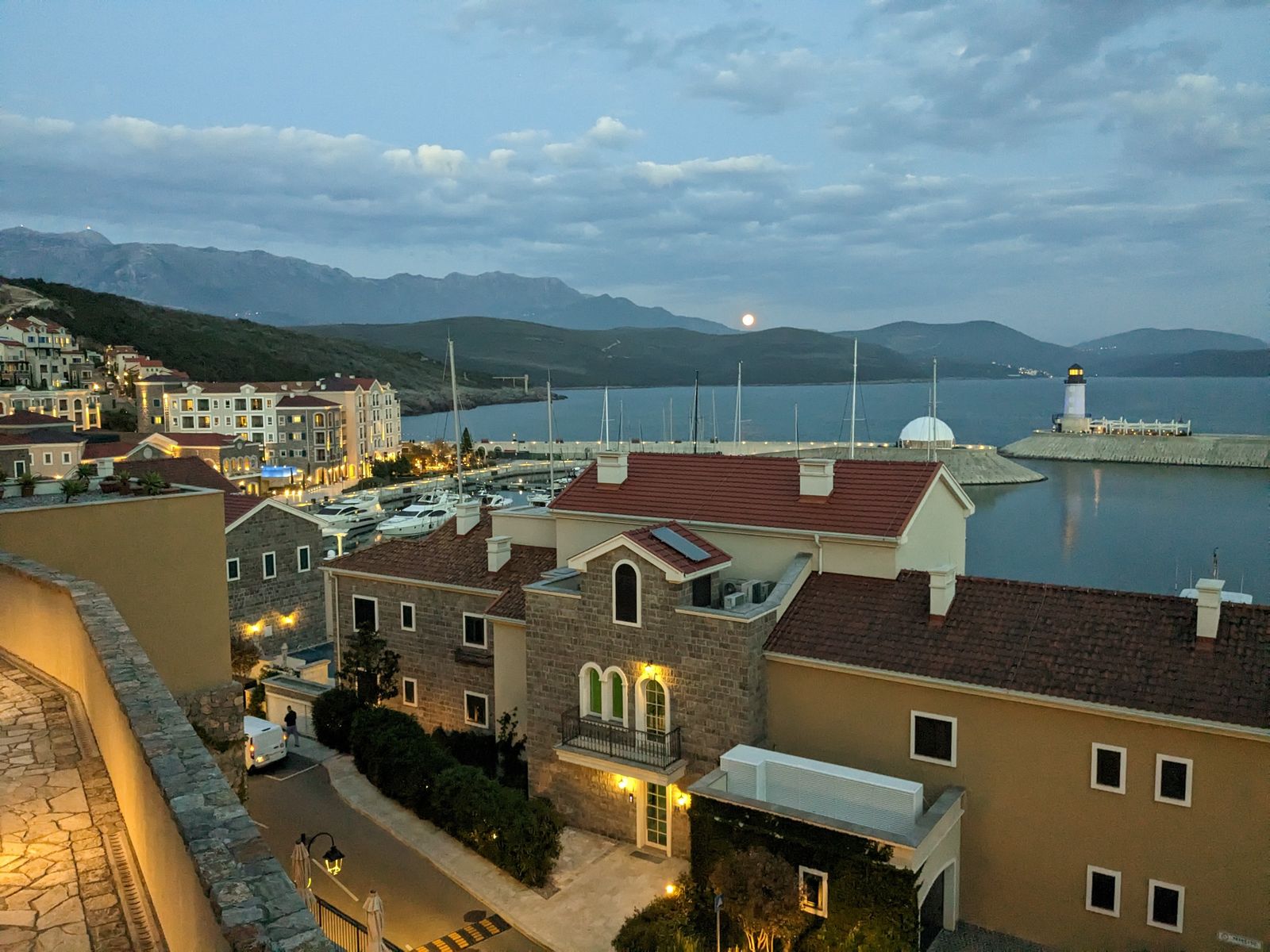 Photo: view of the full moon from the back porch
Photo: view of the full moon from the back porch
It wasn’t just the home-made dinners that counted. Most dinners I had at Zuzalu was from running into someone at dinner time, or spontaneously joining a group sitting in a restaurant, or receiving a “Join me for dinner here” text in one of the many small group chats.
Frequent, spontaneous interactions = close relationships
In college, I lived in one of the nerdiest, most close-knit dorms. Every day after coming back from lectures, to get to my room I’d have to go through the social common spaces where my dormmates were playing D&D, discussing math and tea, recounting their hacking stories, practicing juggling, etc. Frequent, spontaneous interactions were unavoidable. It was the first time in my life I’d felt not only that I had one or two friends, but also that I was part of a close community of passionate, like-minded people.
Zuzalu was the only experience since then that had given me the same feeling (with much less teenage drama).
Breakfast at Zuzalu was free every day, and where most spontaneous friend-making happened. It’s quite hard to describe how other positive spontaneous interactions happened, as by definition there were few rules or patterns. Yet many memorable experiences I had clearly emerged from spontaneity. Going on a hike at midnight with some people I’d just met because of a power outage, then ended up climbing some rocks by the beach and talking until 4am. Moving meetings to Kotor last-minute to escape the resort. Deciding the night before to go on a day trip to a castle in Albania. Arriving home at 1am to awake roommates and then having deep personal talks with them. Organically forming a habit of going on an evening walk everyday with friends. Walking into animated whiteboard conversations in the co-working room.
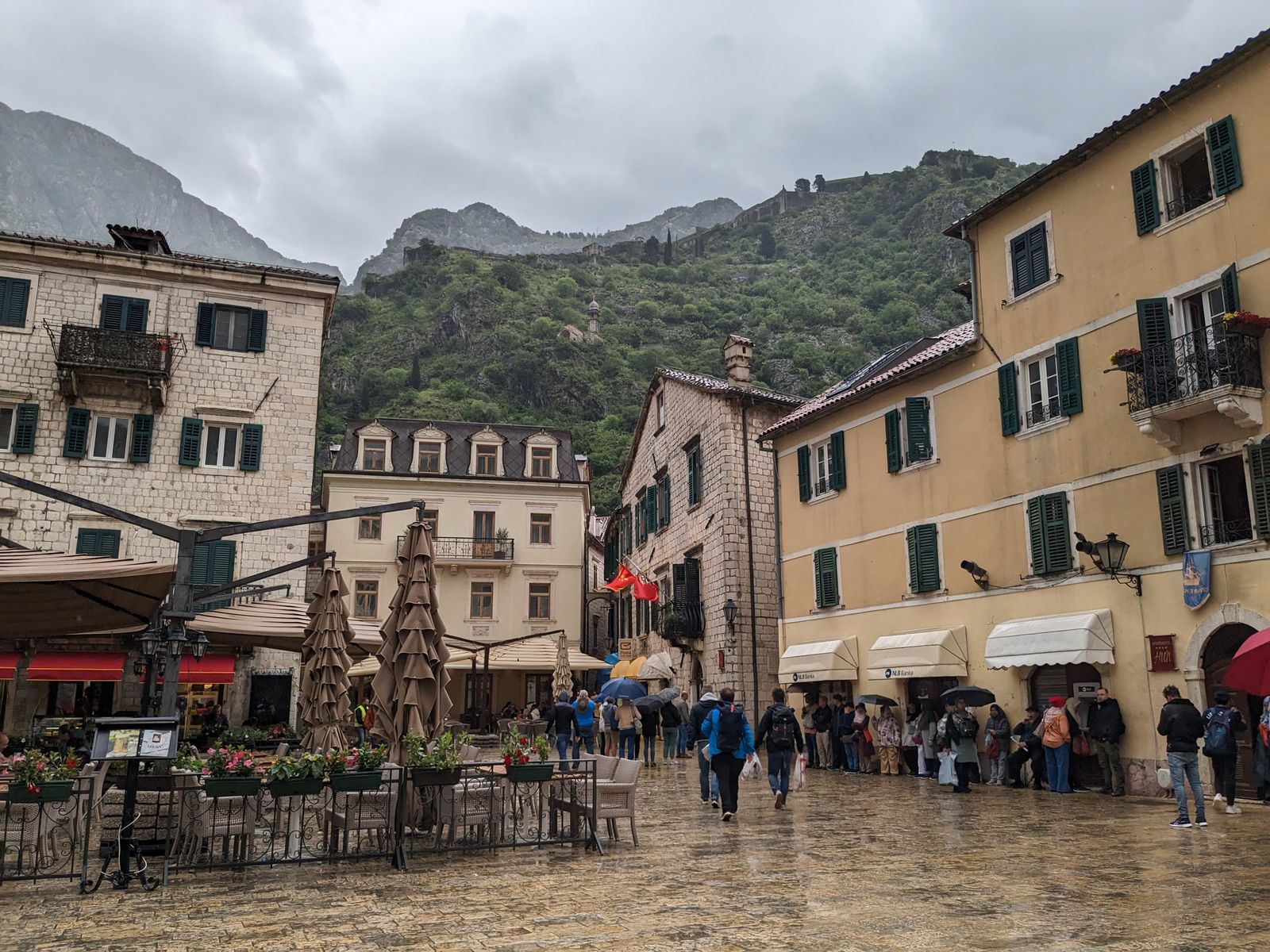 Photo: spontaneous trip to Kotor
Photo: spontaneous trip to Kotor
And, perhaps my favorite instance of serendipity: one of my close friend groups at Zuzalu started with all of us going to the same ZK event, creating a group chat to plan another ZK event, then failing to do any planning and instead just using the group chat to ask if anyone wanted to go the gym or dinner.
A lot of learning
The first few weeks at Zuzalu were an inspirational playground. I was a beginner in ZK; my more expert friends taught me and other beginners like me to understand and code our own ZK implementations. Everyone was eager to learn and to help others learn, regardless of how knowledgeable or ignorant the people involved were. It’s a testament to the average Zuzaluan’s humility and the social scene that, quite often, I only learned who someone was professionally after having already spent a few events and dinners with them, and became surprised and impressed with their achievements.
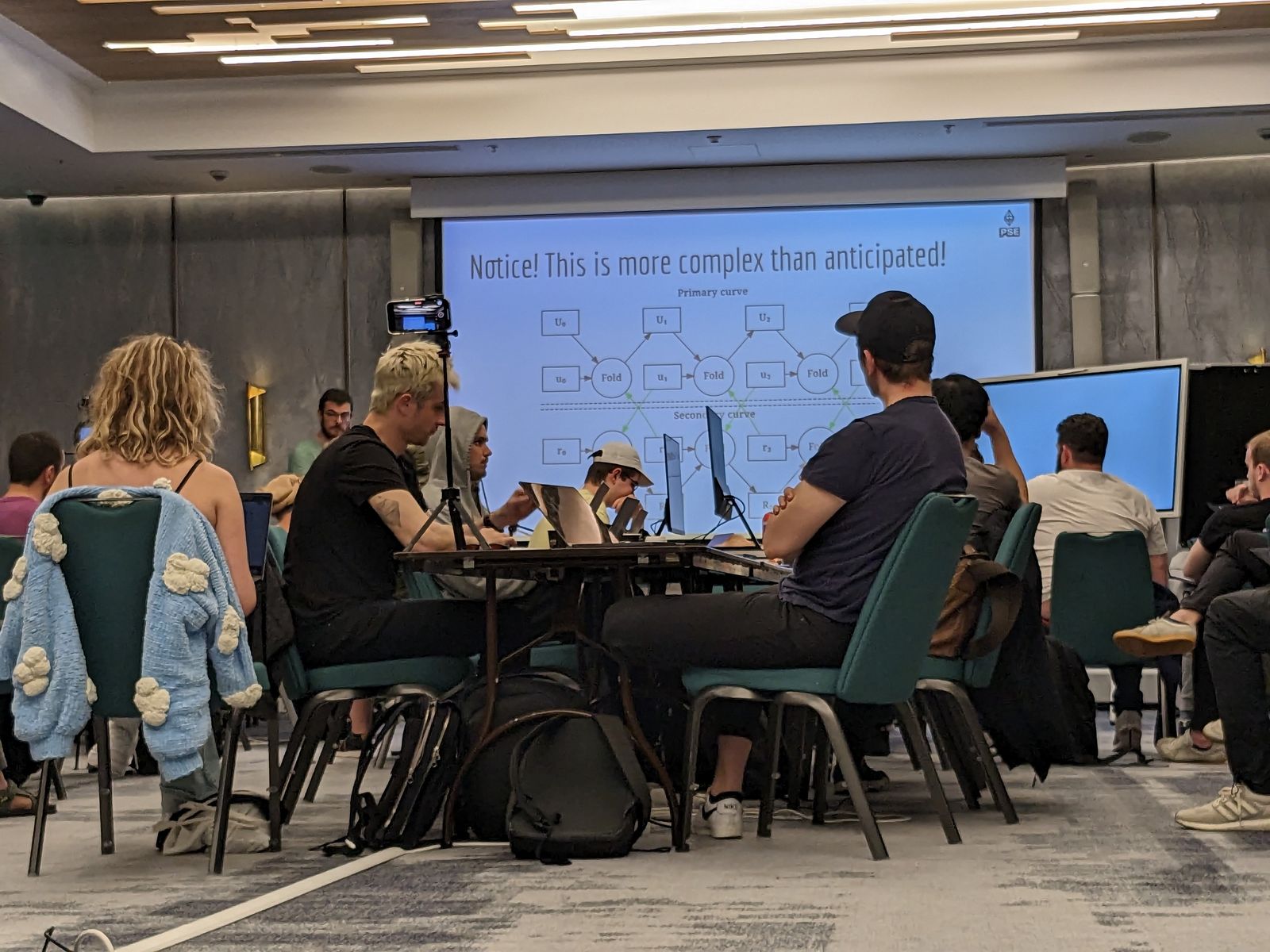 Photo: fair warning to everyone learning ZK
Photo: fair warning to everyone learning ZK
We also learned much about building a community.
Starting the second week of May, my time became consumed with organizing longevity events and VitaDAO off-site activities. Once the longevity events concluded, it was time to get ready for the final week of Zuzalu. There was not enough time anymore to explore and learn.
Around this time, words about Zuzalu had also gotten out; articles about it published. We started getting many unofficial visitors. Most of these visitors came to Montenegro for EDCON, a crypto conference, and therefore came with a conference-y networking mindset. This was quite a vibe shift from the vibe of Zuzalu. Zuzalu passport checking was enforced more strictly.
We’d had many discussions about the future of Zuzalu, much of which surrounded the question of exclusivity. I held the minority opinion on this question. While most people presumed that careful curation of residents and visitors were crucial and focused their debate on how to select the right people, I was not a fan of the exclusivity and thought that a community like this should be able to develop a strong enough culture to filter out mismatch vibes, and to evolve beyond security by obscurity (which, as we crypto people would know, is not a good security strategy).
Seeing what happened at the end of Zuzalu urged me to revisit my position on exclusivity a few times. My position didn’t change in the end, but I gained more appreciation for all the difficult issues an open community would have to address.
A lot of work that didn’t feel like work
My favorite conversation topic at Zuzalu was about brainstorming how to apply ZK to biotech, healthcare, longevity. It did feel like a lonely island sometimes, being one of the only two people at Zuzalu who persistently cared enough about this Venn diagram intersection. But we did leave with many actionable ideas for projects and potential collaborators.
Zuzalu was a set up that worked well for a specific nomadic lifestyle, less well for the lifestyle of most people who work in longevity. “The best conversations are outside of the talks,” said one of my longevity speakers to another. “There’s all this crazy crypto stuff, data privacy, analyzing data without revealing it…” I’d thought longingly about the kind of insights and projects that could have emerged had more longevity people were able to be Zuzalu residents for the whole two months. The crypto residents of Zuzalu had had two months to learn about longevity, but so rarely did the knowledge had enough time and opportunity to disseminate the other direction.
That said, more cross-disciplinary collaborations did occur. A small group might be launching a longevity fashion collection. The crypto x AI people are exploring the next big use cases for crypto.
There are two different directions for Zuzalu to grow its learning / co-working aspect. I would love to see it pursue both:
-
From explore to exploit: many project ideas were born during this Zuzalu. The next Zuzalu should see these projects grow and supported, and make space for their development in person. I would be disappointed to see us spending most of our time in the same conferences and talks next time around — not because the talks are bad, just because we already had them!
-
Exposure to other fields: have different conferences! Invite world expert in other fields! Fusion, space, manufacturing, music, textile, metascience — crypto has a lot of solutions, and most fields are ripe with problems awaiting new ideas
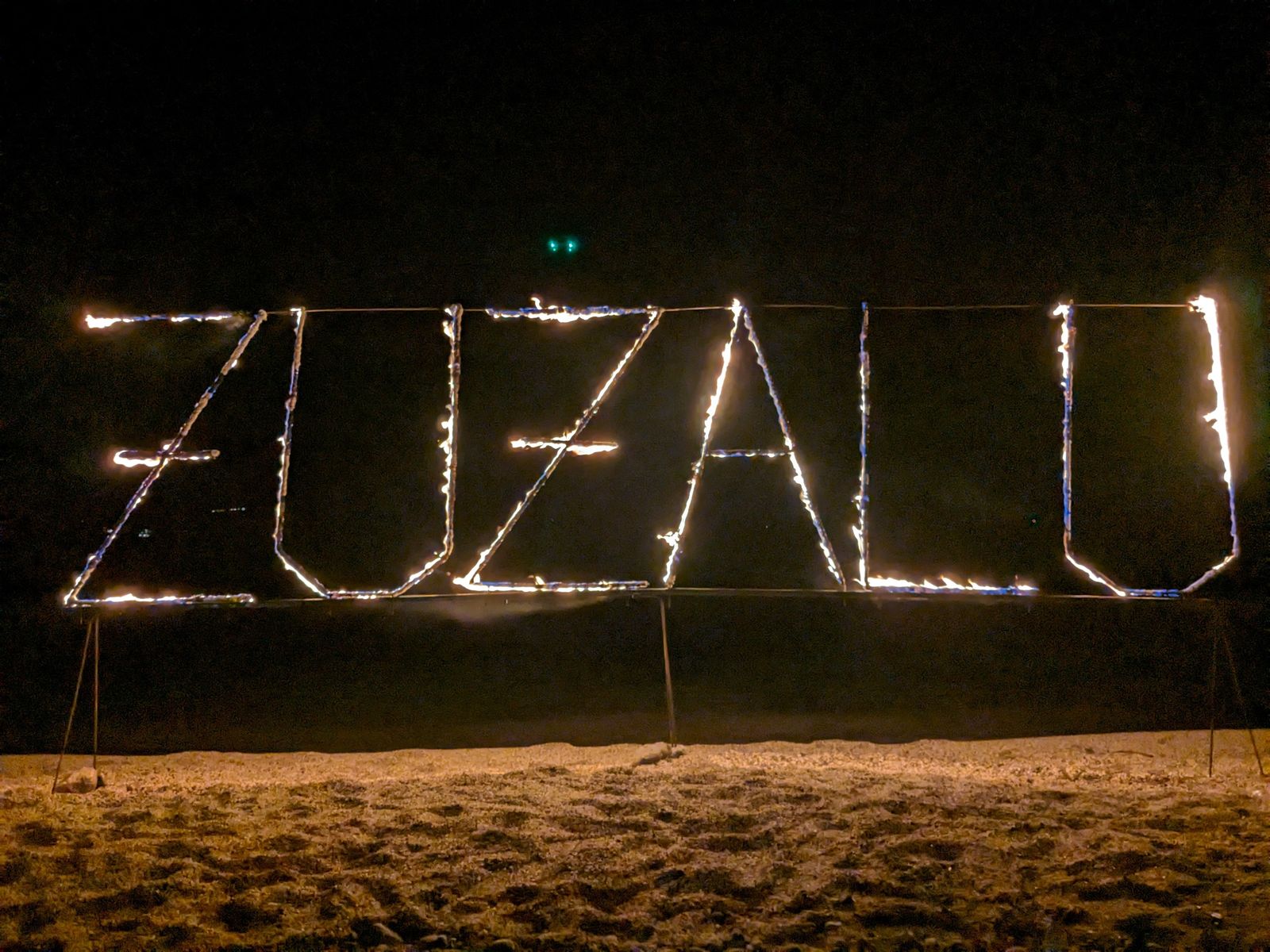
’til the next Zuzalu!